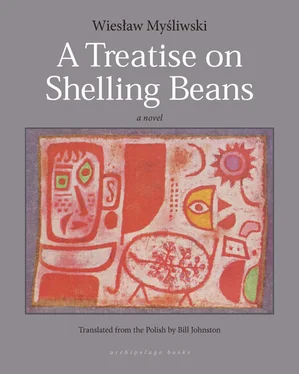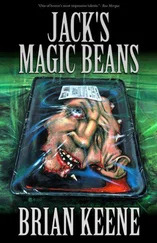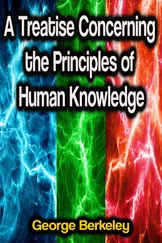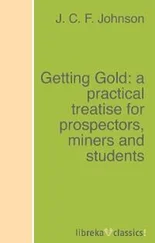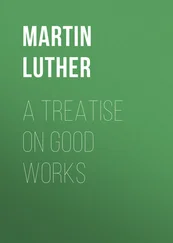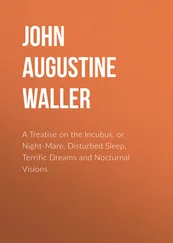“My fingers were already over the keys when he raised himself from the armchair and said:
“ ‘I’m going to go get some sleep.’
“Mother tried to hold him back, have him wait a moment, she’d make the bed, in the meantime he could have something to eat, take a bath. It was like he didn’t hear her. With a heavy step, almost as if he were hauling his own body, he dragged himself to his study, not to the bedroom. Mother took out a blanket and pillow and hurried after him. For a long time she didn’t reappear. My brother and I waited for her just outside the door of the study. As she came out she led us away from there, then she told us God forbid never to go in to where father was. Not even to go near, to stay away from the door. And in general to keep quiet. Me, I shouldn’t try to play the piano under any circumstances.
“From that moment on he slept in the study on the sofa. He only left to go to the bathroom. Even then he’d first crack open the door, and if he saw me or my brother nearby, he’d close it again at once. Besides, mother kept an eye on us and made sure we didn’t hang around the hallway needlessly. One time I asked mother why father didn’t want to see us.
“ ‘Not for the moment, son,’ she replied. ‘He needs to rest. You understand how exhausted he must be.’
“He didn’t eat with us either. Mother took his food to him in the study. Three times a day. Always on a silver tray. The same one the maid had once brought our meals on. Because of the war we’d learned to eat without niceties, and we’d completely forgotten ab out the silver tray. We’d not had a maid for a long time either. Plus, what we ate didn’t merit a silver tray or a maid. Often there was nothing to eat at all. Mother sold various valuables to buy food. She’d even thought about selling the silver tray, because if father didn’t come back it wouldn’t have been any use to us. Once she took the tray from the dresser intending to finally sell it, but then suddenly, as if she had a presentiment she said:
“ ‘What if he comes back, what will I serve him his meals on?’
“And instead of the tray, she sold their wedding rings.
“When she was taking him his food, even though she carried the tray in both hands she wouldn’t let my brother or me open the door for her. The tray would be loaded, there was a tureen of soup, a dish with the main course, a plate, a bowl, the teapot, cup and saucer, sugar bowl, silverware. She would place the tray on the floor, check that neither of us were about, and only then knock at his door. She was taking food to her own husband, but still she’d knock. It’s hard to imagine a more bizarre situation. Not that he ever opened the door for her. She would always open it herself. She’d pick the tray up from the ground and only then go in.
“She usually sat with him till he was done eating. Sometimes, though, she was there much longer. I was often tempted to sneak up to the door and listen in to see what they were talking about, and in general if they were talking at all or if they were just silent all that time. Of course, we’d been taught that eavesdropping was wrong. But the war made us unlearn a lot of things we’d been taught. It wasn’t that that held me back, but rather the fear of what I might hear. Especially because when he didn’t feel like eating, which sometimes happened, my mother’s eyes would be brimming with tears as she came out of his study. And that was how hatred toward my father began to grow in me. I hated him so much sometimes for those tears of my mother’s. Nowadays, yes, nowadays I can guess what went on between them.
“With every meal my mother took to him it became more and more important whether she’d leave there tearful again, or whether her expression would be calm. Even when I was in the furthest room I’d be listening for her coming out of his study, and I’d run to meet her to see if there were tears in her eyes or whether there was even the least hint of a smile on her face. I even tried to guess if it would happen when she took him breakfast or lunch or dinner. It was then that I first became aware of how much I loved my mother. While my father, every time she left his study crying I hated him more, never mind that he’d come back. I actually felt that it was my job to protect my mother from him. I had the feeling that every time my mother brought him a meal, he was taking her away from me. In fact, my love for my mother also protected me from him. It still protects me today, even though my mother is no longer alive either. If it hadn’t been for that, he may well have pulled me along after him. Because I inherited his bad conscience. I often feel as tormented as he must have been. You seem surprised that a bad conscience can be inherited. Everything can, everything can, my dear sir. We have to inherit it all, otherwise what happened will keep repeating itself. We can’t simply select from our inheritance only the things that won’t weigh us down. That way we’d be utterly entangled in hypocrisy. As it is we wallow in falsehood. Have you not noticed that lies have taken on the appearance of truth? They’ve become our daily bread. A way of life. Almost a faith. We absolve ourselves of our sins with lies, convince ourselves with lies, justify accepted truths with lies. Just take a good look at the world. In any case, I’ve inherited that from him. And I want it that way. Otherwise I might not have become as aware of the undying love I felt toward my mother.
“One day, as mother came out of the study carrying yet another uneaten meal, her eyes filled with tears, she looked in my direction and said abruptly:
“ ‘Your father wants to see you.’
“I felt no joy, believe me. Not even relief. I knocked at the door, my heart pounding. He was sitting on the sofa, in his pajamas, in rumpled bedding, wearing house slippers. He was hunched over, as if the simple act of sitting were agony for him.
“ ‘Come here,’ he said.
“His voice seemed alien to me. I wouldn’t have recognized it.”
“ ‘Closer,’ he said. At that moment I noticed that his face was even thinner and more sallow than when he’d first appeared. His cold eyes seemed almost lifeless. They were turned in my direction, but I couldn’t tell if he actually saw me. My heart was thumping ever more loudly in my chest, though all I was doing was standing in front of my own father. He was a good father, please believe me. He was exceptionally mild-tempered, he never got angry. He never so much as laid a finger on me, unlike my mother. I’d get up to mischief sometimes, and he’d always go easy on me. Now, for the first time I was afraid in his presence.
“ ‘I want to make my confession to you, son,’ he said. ‘To you, not to God.’ A shiver ran down my spine, though I didn’t really understand these opening words. ‘God forgives too easily.’ It was as if he was wrenching the words out of himself. I had the impression he was speaking not with his mouth but with his entire body that had been exhausted by the war, that was so skinny his bones poked through his pajamas. I felt like I could hear them rubbing against each other at every word. ‘Fathers should confess to their sons if memory is to survive. I don’t need you to forgive me. I need you to remember. Your memory will be my penance.’ He had tired himself, he lowered his head and for a long time we remained like that, me standing stiffly in front of him as if I were at attention, him on the sofa like he might come crashing head first to the floor. With a great effort he raised his eyes to me. They were no longer cold and lifeless. It was more as if they didn’t believe it was me standing there. He looked at me for a long time. He looked and looked, and still he didn’t seem to believe it was me. ‘I was ordered to check whether anyone else was still hiding there. In the orchard between the farmhouse and the barn there was a potato clamp. In those parts they dig pits, a bit like a cellar. I ran up to it, yanked open the door, and I saw you. Now that you’re standing here in front of me I’m even more sure it was you. I saw the terror in your eyes. Come closer.’ He stared into my eyes for a long, long time, from so close up I could almost feel our eyes touching. ‘Yes, these are the same eyes. They didn’t believe that the soldier with the smoking gun barrel, who could pull the trigger again at any moment, was your father. I hesitated for a second. That second made me realize that I have no right to live. Me, your father, I felt disappointed that it was you. I slammed the door, furious, and shouted back that there was no one there.’ He’d grown tired, he was clearly short of breath, but a moment later he took my head in both his hands and laid it on his shoulder. His body was shaking. ‘It would have been better for all of us if I’d not survived,’ I heard him whisper by my ear. ‘But I so wanted to see you all before I died. So very much. I love you, son. But that’s not enough to live. Go now.’ He pushed me away from himself.”
Читать дальше
